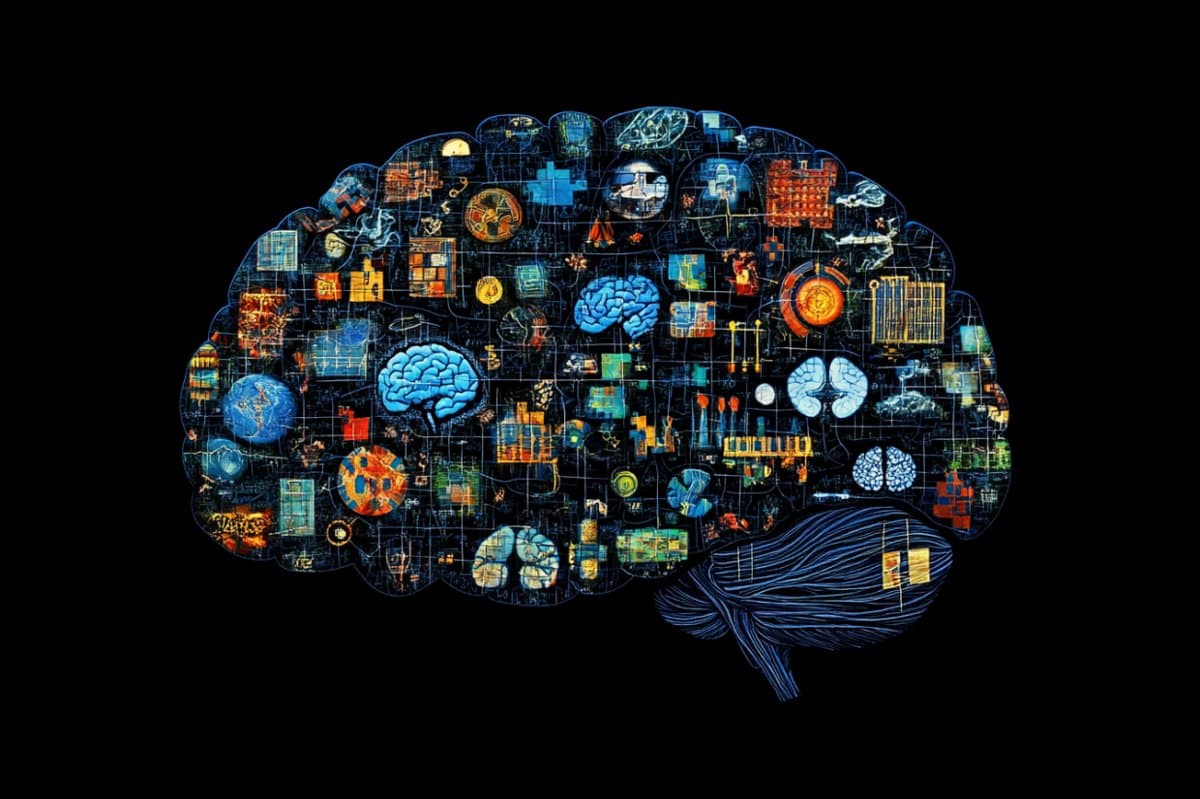Summary: Researchers have identified that the right frontal lobe plays a critical role in logical thinking and problem-solving. Using lesion-deficit mapping in 247 patients with brain injuries, they found that damage to this area leads to significantly more reasoning errors.
Two new cognitive tests developed for the study accurately detected reasoning impairments that traditional assessments might miss. These findings could improve clinical diagnosis and treatment for patients with right frontal brain damage.
Key Facts:
- Right Frontal Lobe: Damage here impaired reasoning abilities by around 15%.
- New Reasoning Tests: Verbal and nonverbal tasks successfully identified cognitive deficits.
- Clinical Potential: The tests could enhance NHS screening for brain injury-related reasoning problems.
Source: UCL
A team of researchers at UCL and UCLH have identified the key brain regions that are essential for logical thinking and problem solving.
The findings, published in Brain, help to increase our understanding of how the human brain supports our ability to comprehend, draw conclusions, and deal with new and novel problems – otherwise known as reasoning skills.
To determine which brain areas are necessary for a certain ability, researchers study patients with brain lesions (an area of damage in the brain) caused by stroke or brain tumours.
This approach, known as ‘lesion-deficit mapping’, is the most powerful method for localising function in the human brain.
Studying brain injuries can be difficult and time-consuming because researchers need a large number of patients with specific brain damage. This kind of damage can affect how a person thinks, feels, or moves.
However, very few research centres have access to enough patients to conduct these studies effectively.
As a result, previous studies have mainly relied on functional imaging (fMRI) techniques in healthy individuals. However, these results can sometimes be misleading as they provide correlational rather than causal evidence.
The new study, led by researchers at the UCL Queen Square Institute of Neurology and Department of Neuropsychology at the National Hospital for Neurology and Neurosurgery, UCLH, used lesion-deficit mapping to investigate 247 patients with unilateral focal brain lesions in either the left or right frontal (front) or posterior (back) regions of the brain. An additional 81 healthy individuals served as controls.
To assess reasoning skills in these patients, the researchers developed two new tests.
These included a verbal deductive reasoning task (a type of puzzle where participants are asked to find relationships between words to solve problems), which included questions such as: “If Sarah is smarter than Diana and Sarah is smarter than Heather, is Diane smarter than Heather?”.
And a nonverbal analogical reasoning task (a type of puzzle where participants are asked to use pictures, shapes or numbers to figure out logical patterns and solve problems), with questions like: “Which set of numbers is 1,2,3 most similar to – 5,6,7 or 6,5,7?”.
The results showed that people with damage to the right frontal lobe had a much harder time on both tests compared to those with damage in other areas. They made about 15% more mistakes than the other patients and healthy individuals.
Lead author, Dr Joseph Mole (UCL Queen Square Institute of Neurology and Department of Neuropsychology, UCLH) said: “Our study explores how the front right part of the brain helps people think and solve new problems.
“It also shows that our two new tests can help detect reasoning problems in individuals with brain damage, improving diagnosis and treatment.”
Senior author, Professor Lisa Cipolotti (UCL Queen Square Institute of Neurology and Department of Neuropsychology, UCLH) added: “By combining a detailed cognitive investigation in a large sample of brain damaged patients with advanced lesion mapping techniques – developed by Professor Parashkev Nachev and his team at the UCL Queen Square Institute of Neurology – we have deepened our understanding of the complex and, so far, poorly understood, neural structures underlying human reasoning.
“Our findings show a close connection between the right frontal brain network involved in reasoning and the right frontal brain network essential for fluid intelligence (our ability to solve problems without prior experience).
“This suggests that a common area of the brain plays a critical role in both reasoning and fluid intelligence.”
The researchers believe that these findings have significant clinical implications, as the two new tests can help identify cognitive impairments that would otherwise go undetected.
With further validation and implementation, the team aim to make their new reasoning tests widely available in the NHS, addressing an unmet need for tools specifically designed for assessing right frontal lobe dysfunction.
Funding: The study was funded by Wellcome and the National Institute for Health and Care Research University College London Hospitals Biomedical Research Centre (NIHR UCLH BRC) funding scheme. The researchers also received funding from The National Brain Appeal and the Guarantors of Brain.
About this logic and neuroscience research news
Author: Poppy Tombs
Source: UCL
Contact: Poppy Tombs – UCL
Image: The image is credited to Neuroscience News
Original Research: Open access.
“A right frontal network for analogical and deductive reasoning” by Lisa Cipolotti et al. Brain
Abstract
A right frontal network for analogical and deductive reasoning
Two of the most well-studied types of reasoning are analogical reasoning (AR) and deductive reasoning (DR). Yet, our understanding of the relationship between reasoning abilities and their neuroanatomical basis remains surprisingly limited.
We aimed to conduct fine-grained anatomical mapping of performance on tests of AR, DR and fluid intelligence (Gf), in a large sample of patients with unilateral focal frontal or posterior lesions and healthy controls.
We assessed 247 prospectively recruited patients using two new tests: the Analogical Reasoning Test (ART) and the Deductive Reasoning Test (DRT); and the best-established measure of Gf: Raven’s Advanced Progressive Matrices (RAPM).
Non-parametric Bayesian stochastic block modelling was used to reveal the community structure of lesion deficit networks, disentangling functional from confounding pathological distributed effects.
ART and DRT performance was significantly impaired in patients with frontal lesions [ART: F(2,238) = 18.93; P < 0.001; Frontal group worse than Posterior group and healthy controls, both P < 0.001; DRT: F(2,387) = 18.491; P < 0.001; Frontal group worse than healthy controls, P < 0.01]. Right frontal effects were evident on both tests.
Thus, on the ART, right frontal patients were more impaired than left (P < 0.05). On the DRT, right frontal patients were more impaired than left frontal patients on questions with indeterminate solutions (P < 0.05) but not on questions with determinate ones.
Non-parametric Bayesian stochastic block modelling implicated a right frontal network in ART and DRT performance. Strikingly, we found that this network was also implicated in performance on RAPM.
Our study represents the most robust investigation of AR and DR in the focally injured brain.
Our findings imply that a right frontal network is critical. The ART and DRT appear to be promising new clinical tests, capable of evaluating reasoning abilities and identifying right frontal lobe dysfunction.





